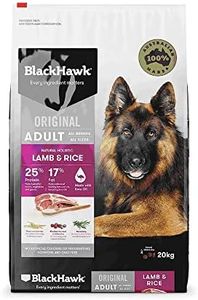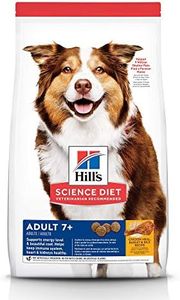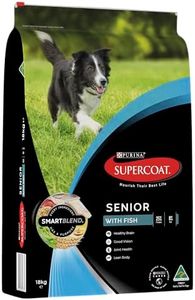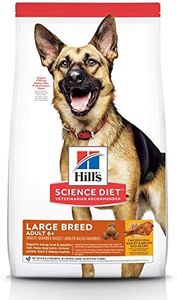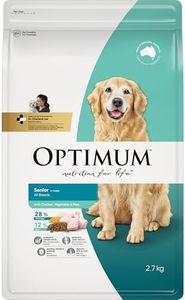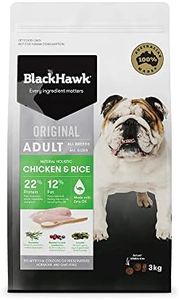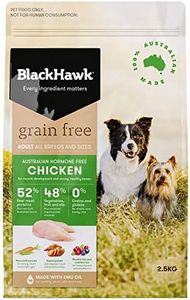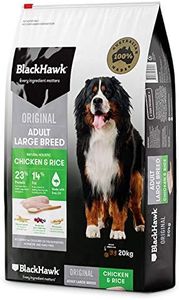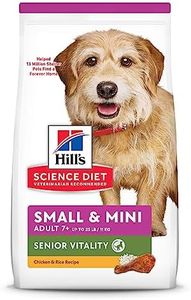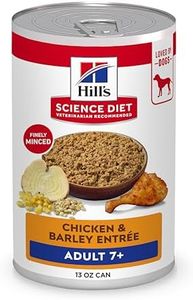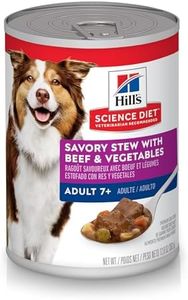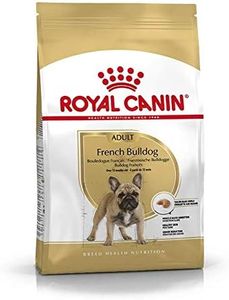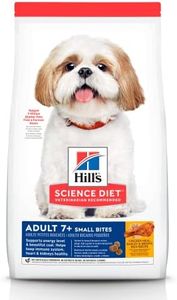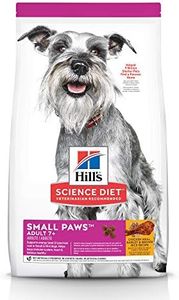We Use CookiesWe use cookies to enhance the security, performance,
functionality and for analytical and promotional activities. By continuing to browse this site you
are agreeing to our privacy policy
10 Best Dog Foods For Senior Dogs
From leading brands and best sellers available on the web.By clicking on a link to a third party's website, log data is shared with that third party.
Buying Guide for the Best Dog Foods For Senior Dogs
Choosing the right dog food for senior dogs is an important decision, as their nutritional needs change with age. Older dogs may require different proteins, fats, fiber, and other nutrients than younger dogs. Before buying food, consider your dog's overall health, activity level, and any specific health issues your vet may have noted. Look for dog foods labeled as 'senior' or 'mature,' but always check the ingredients and nutritional information to ensure it matches your senior dog's needs. Remember, a gradual switch to new food is best to avoid digestive upset.Protein ContentProtein is essential for maintaining muscle mass and supporting overall health in senior dogs. As dogs age, their ability to process protein can change, so high-quality, easily-digestible protein sources are important. Foods specifically for seniors usually have moderate to high protein, using chicken, fish, or lamb rather than by-products. If your dog is still active, a moderate protein level is important to preserve muscles, but if your dog has kidney issues, your vet might recommend a lower-protein diet. Always match the protein level to your dog's health and activity.
Fat ContentFat in the diet provides energy and helps keep the skin and coat healthy. Older dogs may be less active and gain weight more easily, so dog foods for seniors often have reduced fat compared to adult formulas. If your dog is slowing down, look for lower to moderate fat content to help maintain a healthy weight. However, too little fat can lead to dry skin and dull coat, so balance is key. Choose a fat level that matches your dog’s energy level and overall health.
Fiber ContentFiber helps digestion and can prevent constipation, which is common in senior dogs. Most senior dog foods have higher fiber than adult formulas to keep the digestive system healthy. High fiber content is helpful for dogs that tend to get constipated, while dogs with sensitive digestion might need moderate levels instead. You should observe your dog's stool quality and choose a fiber range that supports good digestive health.
Joint Support IngredientsSenior dogs often develop joint issues like arthritis. Some dog foods include special ingredients such as glucosamine and chondroitin for joint support. These ingredients help maintain joint health and can make your dog more comfortable as they age. If your dog is showing signs of stiffness or slowing down, look for foods with added joint support. If not, it’s still not a bad idea as a preventative measure.
Calorie DensityCalorie density refers to how many calories are in each cup or gram of the food. Because most senior dogs are less active, they may need fewer calories to prevent weight gain. Senior-specific foods usually have a lower calorie density. If your dog is not very active or is prone to weight gain, choose a food with lower calorie content. For seniors that are still quite active and fit, moderate calorie foods are a good choice so they get enough energy.
Size and Texture of KibbleAs dogs age, dental health can decline, making it harder for them to chew. Senior dog foods often have softer or smaller kibble that is easier on the teeth and gums. If your dog struggles with hard food or has lost teeth, picking a food with a suitable kibble size or even a wet/canned variant can help ensure they are able to eat comfortably.

